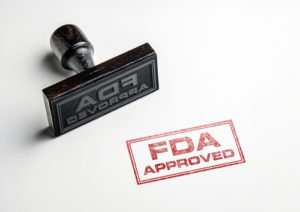DOJ Catch of the Week — Biocompatibles, Inc.
 By the C|C Whistleblower Lawyer Team
By the C|C Whistleblower Lawyer Team
This week’s Department of Justice “Catch of the Week” goes to Pennsylvania-based medical device manufacturer Biocompatibles Inc., a subsidiary of British-based BTG plc. On Monday, the company pleaded guilty and agreed to pay more than $36 million for violating the False Claims Act and Food, Drug and Cosmetic Act by misbranding its embolic device LC Bead, which is used to treat liver cancer, among other diseases. See DOJ Press Release.
The FDA cleared LC Bead as an embolization device that can be placed in blood vessels to block or reduce blood flow to certain types of tumors and arteriovenous malformations. But the FDA never approved it as a drug-device combination product or for use as a drug-delivery device or “drug-eluting” bead. In fact, the FDA sought specific assurances in 2004 that Biocompatibles would not use the FDA’s clearance of the product for embolization to market the device for drug delivery. The company told the FDA that “under no circumstance” would it use the embolization clearance to market the device for drug delivery.
However, two years later that is exactly what Biocompatibles did. It began marketing LC Bead for drug delivery through the company it hired to carry out its sales and distribution in the United States. That company told its sales representatives that LC Bead was “[a] drug-delivery device” and trained its sales representatives to “aggressively penetrate the chemoembolization market.” Sales representatives subsequently told health care providers that the device increased the level of chemotherapy delivered to a liver tumor and resulted in “better tumor response rates.” It did so despite the lack of FDA clearance or approval for that use and despite the absence of evidence to support the claims.
As part of the criminal resolution, Biocompatibles will pay an $8.75 million criminal fine for the misbranding of LC Bead and a criminal forfeiture of $2.25 million. The balance of the settlement — $25 million — is to resolve civil allegations under the False Claims Act that the company caused false claims to be submitted to government healthcare programs for procedures in which LC Bead was loaded with chemotherapy drugs and used as a drug-delivery device. According to the government, when LC Bead was combined with prescription drugs for use as a drug-eluting bead, it constituted a new combination drug-device product that was not approved or cleared by the FDA and not covered by Medicare and other federal health care programs.
In announcing the settlement, the government stressed the importance of complying with the FDA approval process. According to DOJ Civil Chief Benjamin Mizer, “[t]he FDA approval process serves an important role in ensuring that federal health care participants receive devices that are safe, effective and medically appropriate,” and the government “will not permit companies to circumvent that process and put profits over patient safety.” U.S. Attorney Richard L. Durbin Jr. of the Western District of Texas echoed this strong sentiment: “The FDA plays a fundamental role in ensuring the safety and efficacy of medical devices and drugs in this country . . . [and w]e will vigorously pursue those who ignore or seek to circumvent these important patient protections.”
This matter originated in a whistleblower lawsuit filed under the qui tam provisions of the False Claims Act by Ryan Bliss who oversaw Bicompatibles’ North American marketing. He will receive a whistleblower award of approximately $5.1 million from the proceeds of the government’s False Claims Act recovery.
Tagged in: Catch of the Week, FCA Federal,